Diehard supporters still back Donald Trump
- Published
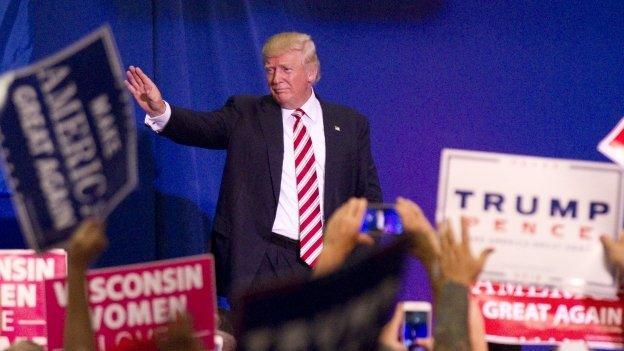
Donald Trump has a core of supporters who back him come what may.
The mid-western Sun beats down on the barns, the corn and the queue waiting for Donald Trump at the West Bend County Fair Park, north of Milwaukee, in the state of Wisconsin.
These are Trump believers united in their view that something has been lost in America and only their candidate can rediscover it and restore their faith in their country.
They like Mr Trump because he is an outsider, because he is arrogant, because he does not bow before political correctness and because he promises to bring jobs back to America.
So they suffer the heat, in their red caps promising to "make America great again" and in their stars and stripes shorts and Trump T-shirts.
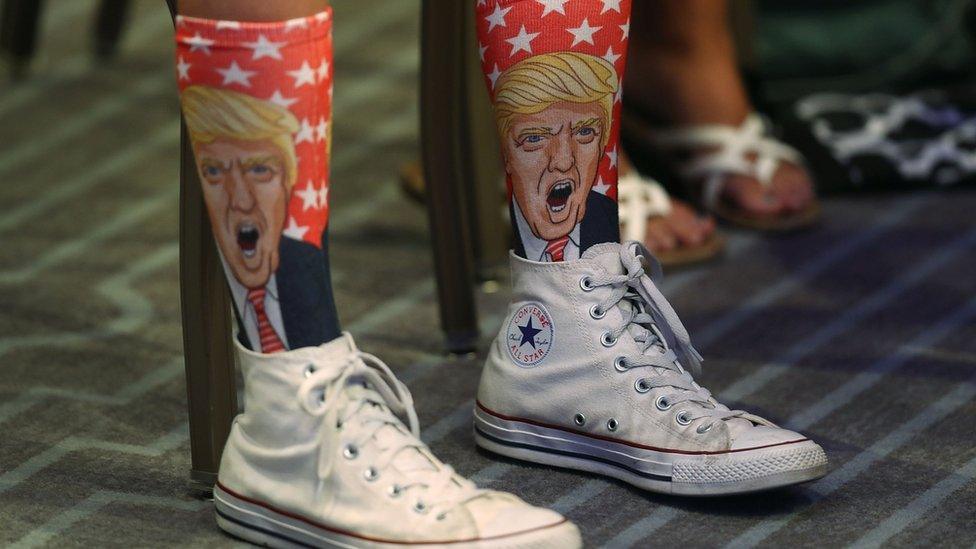
I tell them Mr Trump's campaign is widely judged to be in meltdown and Hillary Clinton is ahead in the key battleground states, that he casually offends, trades insults and is judged by many - including some Republicans - to be unfit to be president.
They will not have it. The media is against them, they reply.
I point out that even a conservative paper such as the Wall Street Journal has in effect given Mr Trump an ultimatum - fix the campaign in three weeks or stand down and see the party divert resources to Senate and House races.
The West Bend crowd admit their man has made mistakes, such as arguing with the Khan family, who had lost their son in Iraq.
It made many of them uncomfortable, but it has not shaken the belief of his core supporters that Donald Trump is standing against a corrupt system rigged against ordinary Americans.
Many of them wait for nearly six hours, enduring Mr Trump's playlist made up of just seven songs. Three are Rolling Stones tracks and one an Italian aria.
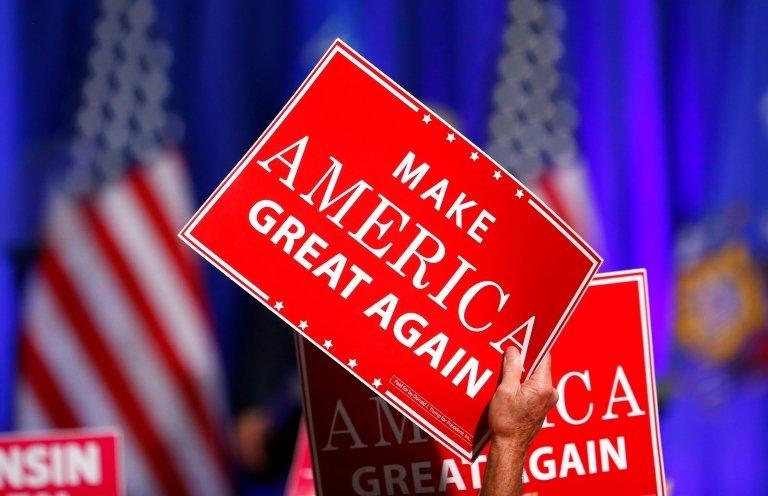
The warm-up speeches tell a story.
First on is Rudy Giuliani, a former Mayor of New York.; then, Reince Priebus, the chairman of the Republican Party, who tells the audience Hillary Clinton "lies and she lies and she lies"; and then, the Governor of Wisconsin, Scott Walker.
There is significance in the appearance of Mr Priebus and Mr Walker.
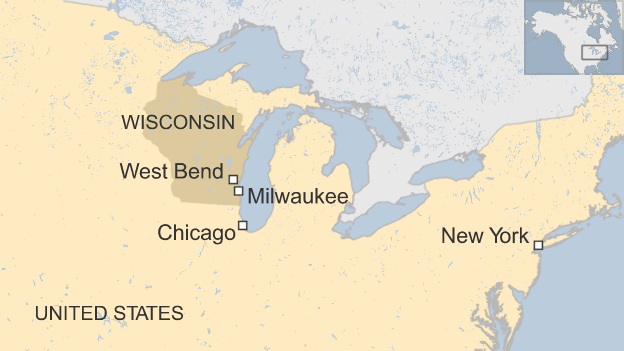
There have been signs the Republican establishment has been distancing itself from Mr Trump.
Four Republican senators and nine Republican Representatives have declared they will not be voting for him.
The candidate arrives late and slowly - he is a heavy man with the appearance of an enforcer, his eyes are lined with exhaustion.
All the evidence suggests there has been a crisis over strategy.
Mr Trump took risks and against all predictions won the primaries. He traded insults, and the voters delivered him victories.
Trump unplugged is the way he likes it.
But blunders have followed, such as insisting President Barack Obama was the founder of the so-called Islamic State.
Many in his party winced at his lack of discipline and some demanded he change course and start acting presidentially.
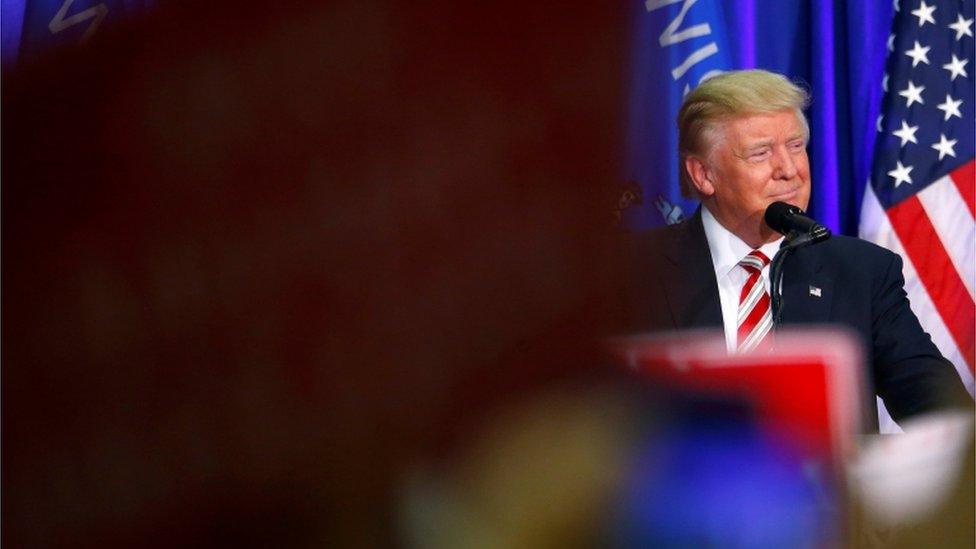
He repeated, on Tuesday, he was who he was and was not going to change.
And then came the rally in West Bend.
The first clue the strategy might have changed was the appearance of auto-prompters.
He had previously used them only for set policy speeches - but now, even before he started speaking, there was speculation he had been persuaded to stick to a prepared text.
The speech was on law and order, but the tone was vastly different from what he had said before about minorities.
Suddenly, the candidate was vowing that if elected president he would "reject bigotry and hatred and oppression in all its forms, and seek a new future built on our common culture and values as one American people".
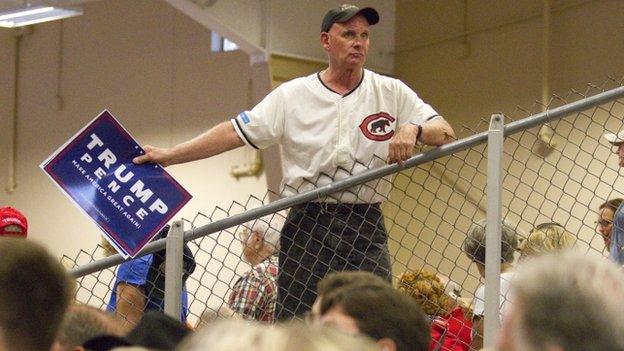
He said that he wanted the votes of all black Americans, despite polls suggesting less than 1% will vote for him.
I could not see a single black American in the audience.
The speech may indicate he recognises if he is to win the election, he will have to reach out to voters not among his core supporters.
Is a new candidate emerging?
Will it make any difference or is the die cast?
He may be down, but he is far from being out.
The polls indicate he is behind in most of the key battleground states, but he still has opportunities.
As the sizeable crowd in West Bend demonstrates, his core constituency is not deserting him.
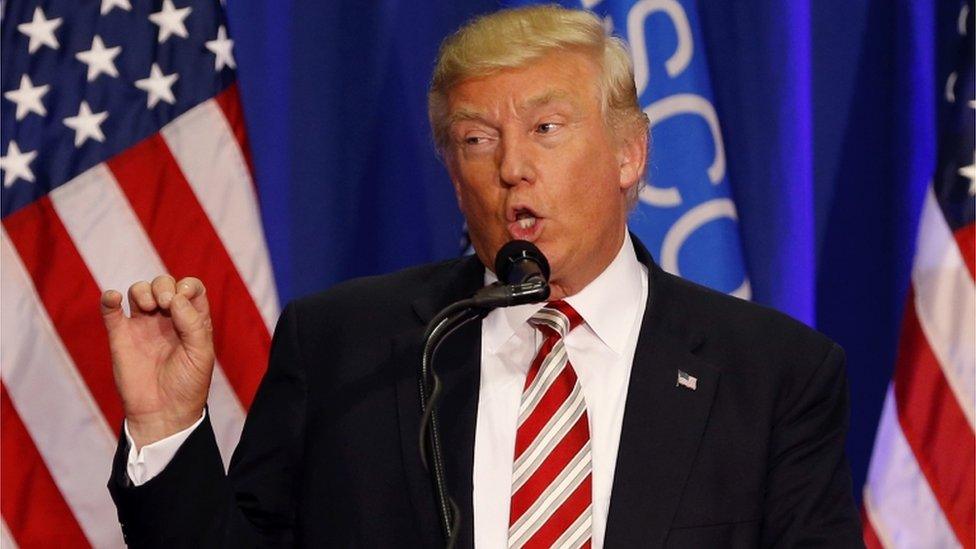
He is running against Hillary Clinton, who is neither trusted nor widely liked.
And his message globalisation has hurt working people in America resonates.
Does he have the discipline to stick to a new message and convince doubters he is capable of learning and of listening?
His opponent will not let Americans forget his gaffes and insults.
One speech will change little, but it indicates he may have bought himself some weeks - perhaps up until the first key presidential debate on 26 September.
At this stage, it would be unwise to count Donald Trump out.
- Published16 August 2016
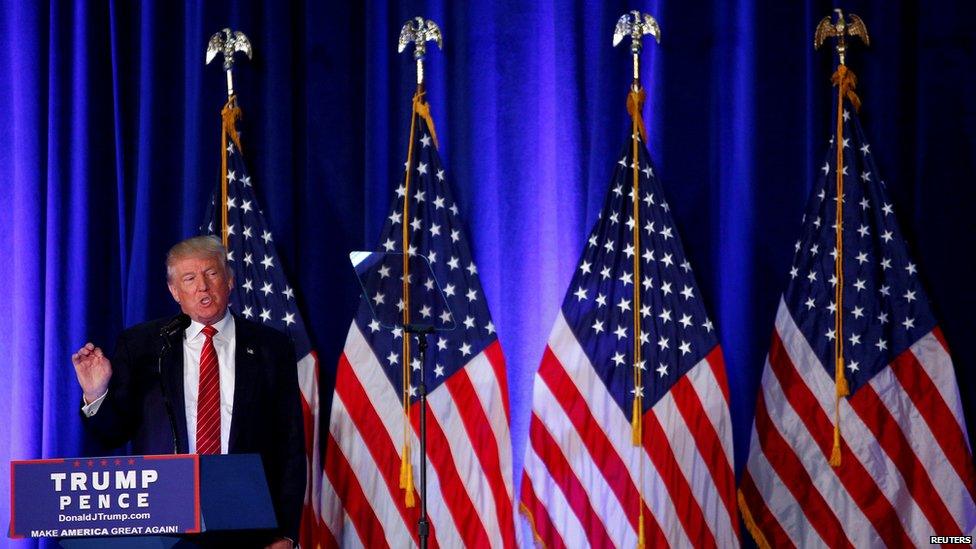
- Published16 August 2016
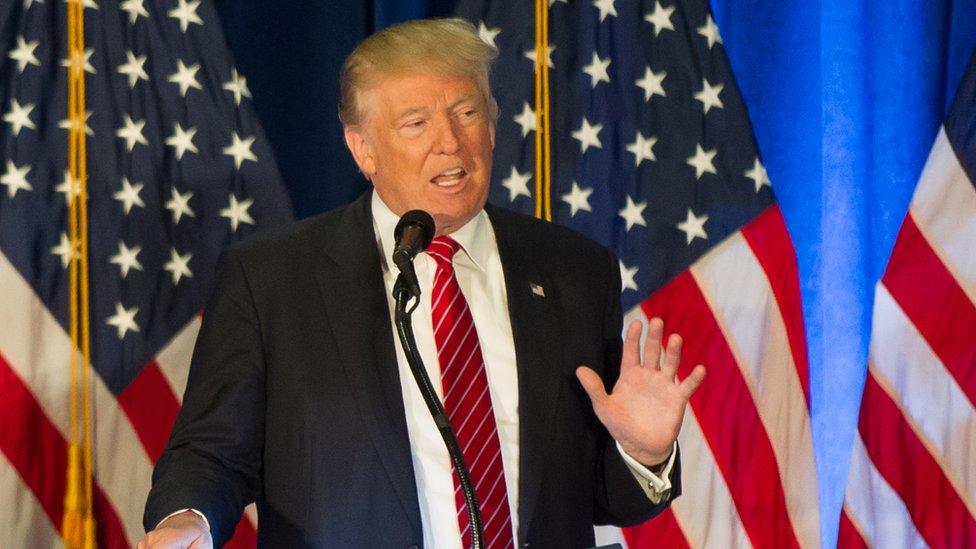
- Published8 October 2016

- Published11 August 2016